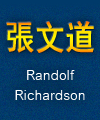
|
|
|
|
Constitution Act, 1982 (Part I, Schedule B) Canadian Charter of Rights and Freedoms (selected portions) |
|
Rights and freedoms in Canada
1. The Canadian Charter of Rights and Freedoms guarantees the rights and freedoms set out in it subject only to such reasonable limits prescribed by law as can be demonstrably justified in a free and democratic society. Fundamental freedoms 2. Everyone has the following fundamental freedoms:
|
| The above text is only a selected portion of the Canadian Constitution; the full text is available here: http://laws-lois.justice.gc.ca/eng/Const/FullText.html |
A downloadable high-resolution version of our Charter of Rights and Freedoms is available, here: charter-of-rights-and-freedoms-canada.jpg
The full text of our Charter of Rights and Freedoms can be found in our Constitution (almost half way into the document), here: http://laws-lois.justice.gc.ca/eng/Const/FullText.html
All rights reserved. All trademarks are the property of their respective owners.











